Creating Quality Validation Contexts
In Quality Validation, a Context is the link between a Rule and a Template.
When a Template Author validates a Template, the Quality Validation algorithm filters all the Contexts that apply to the Template and applies the corresponding Rules.
To create a Context:
On the main menu, go to > > .
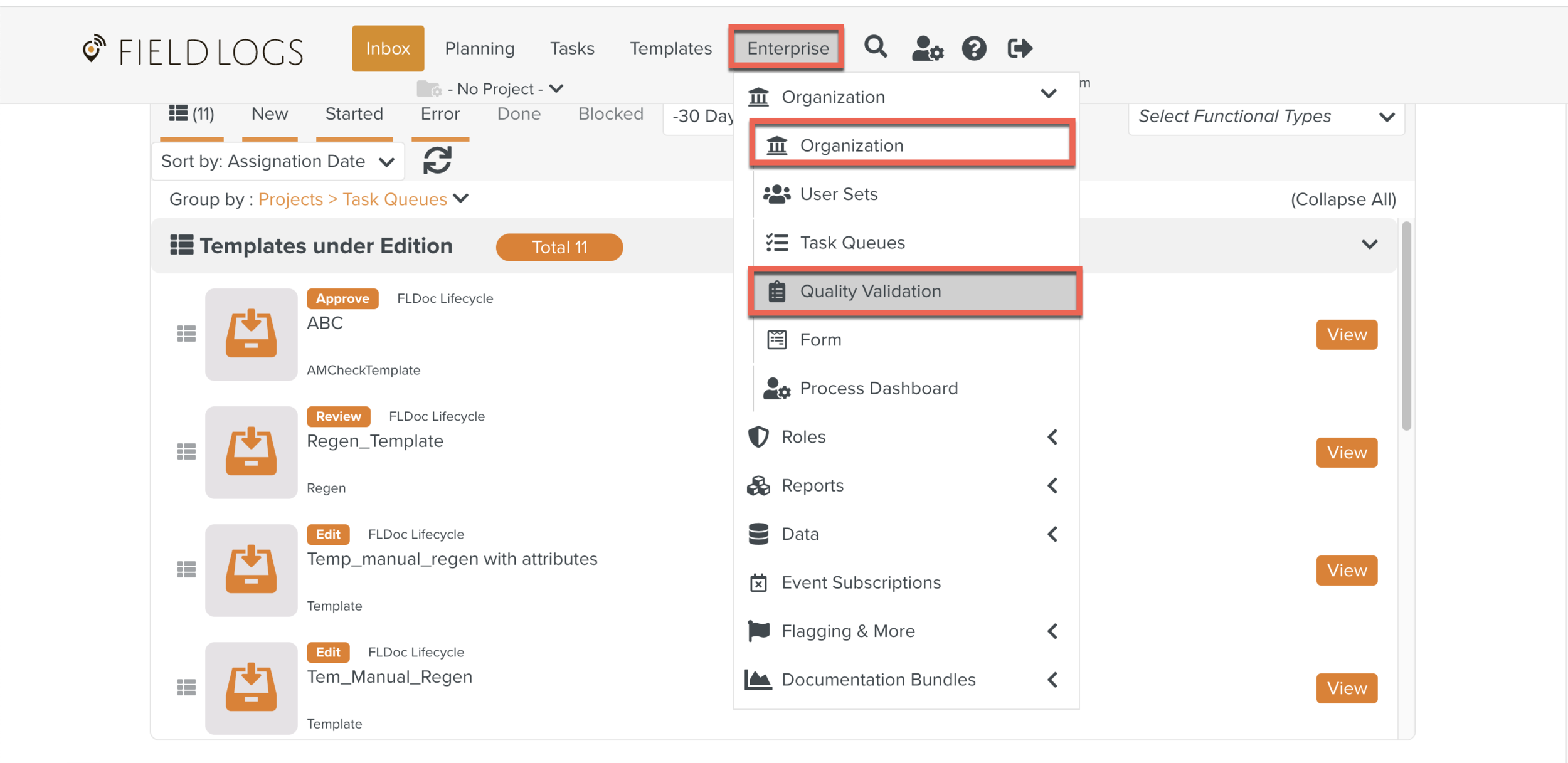
The Quality Validation page opens.
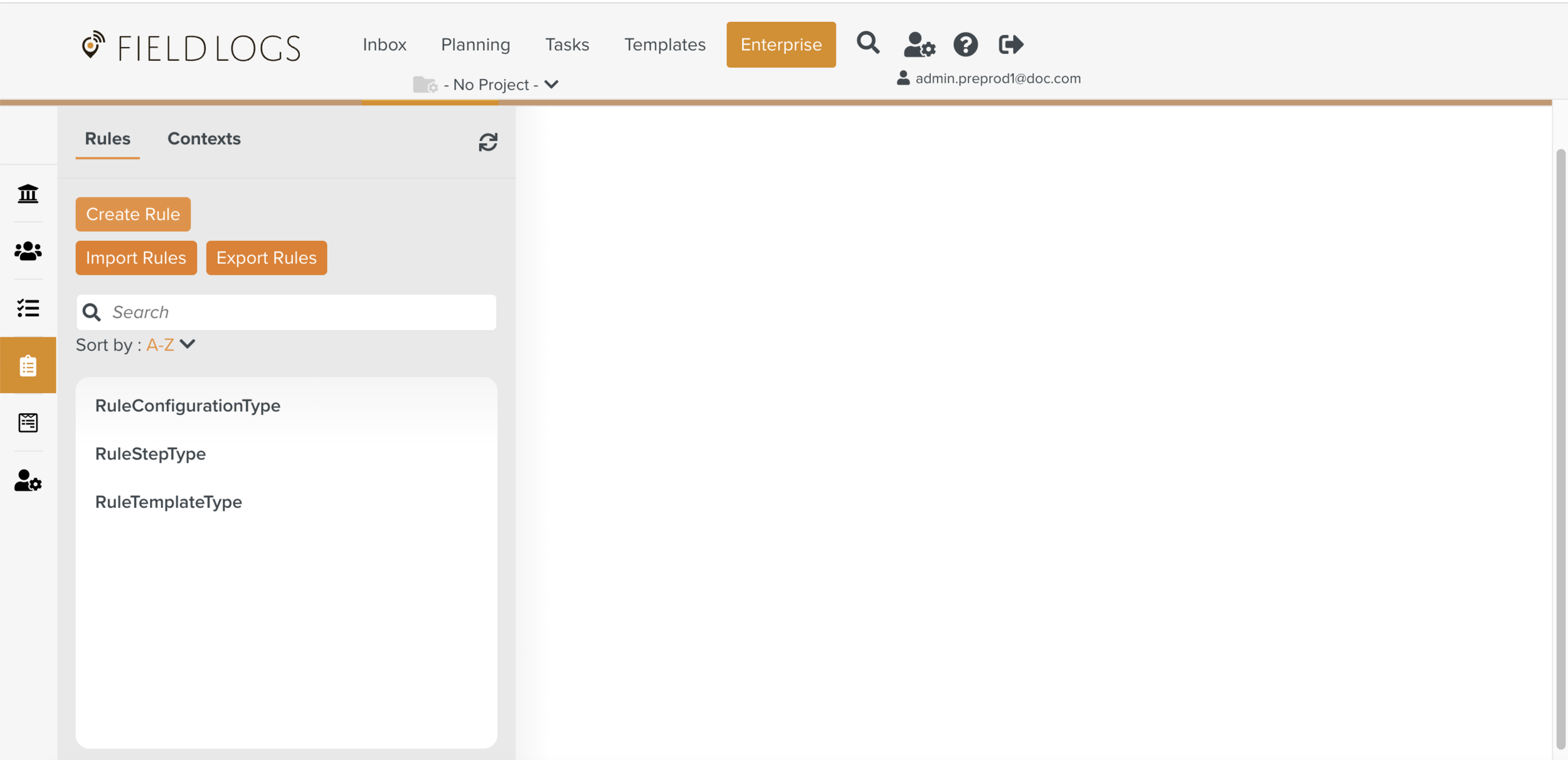
Go to Contexts.
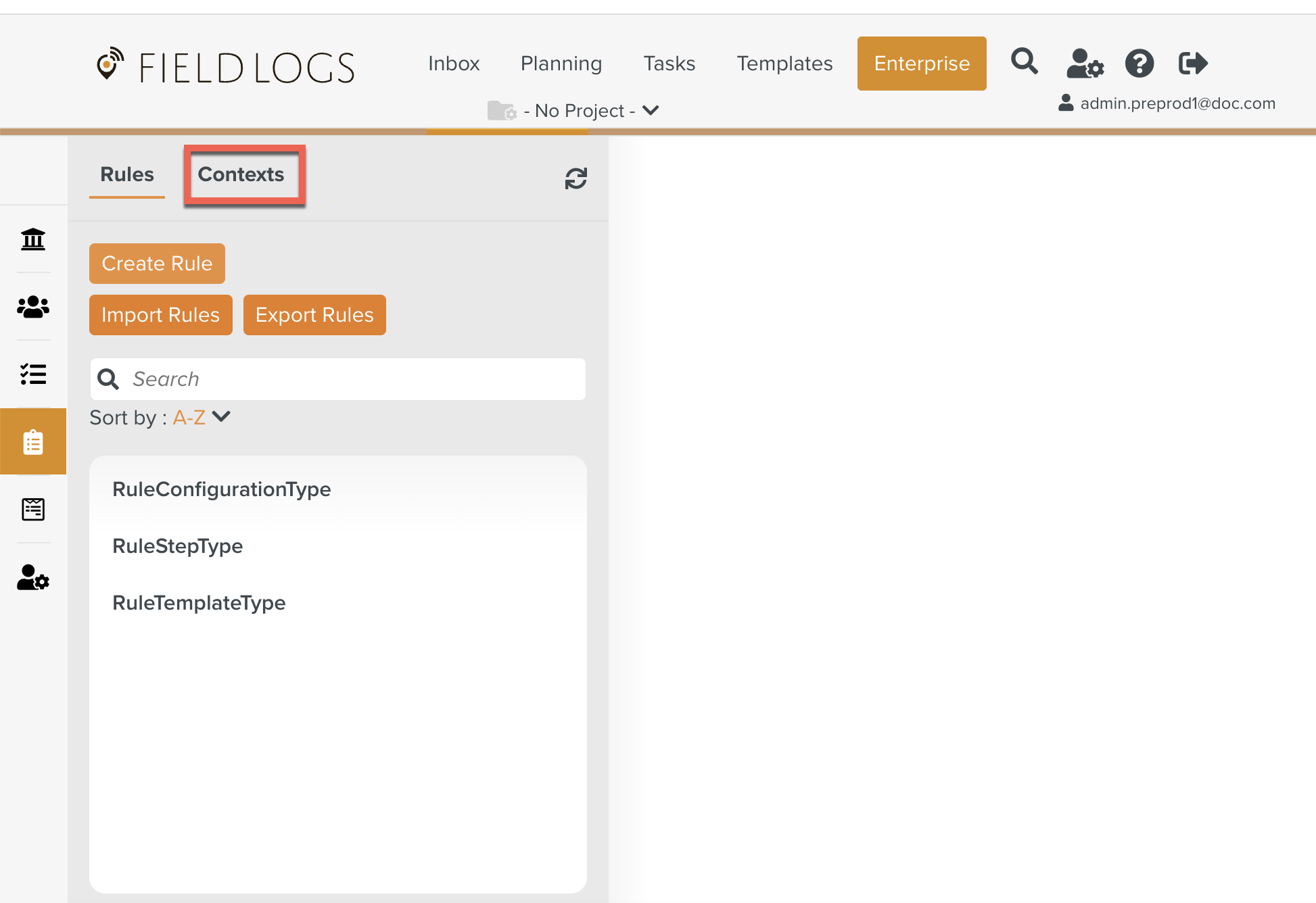
Click .
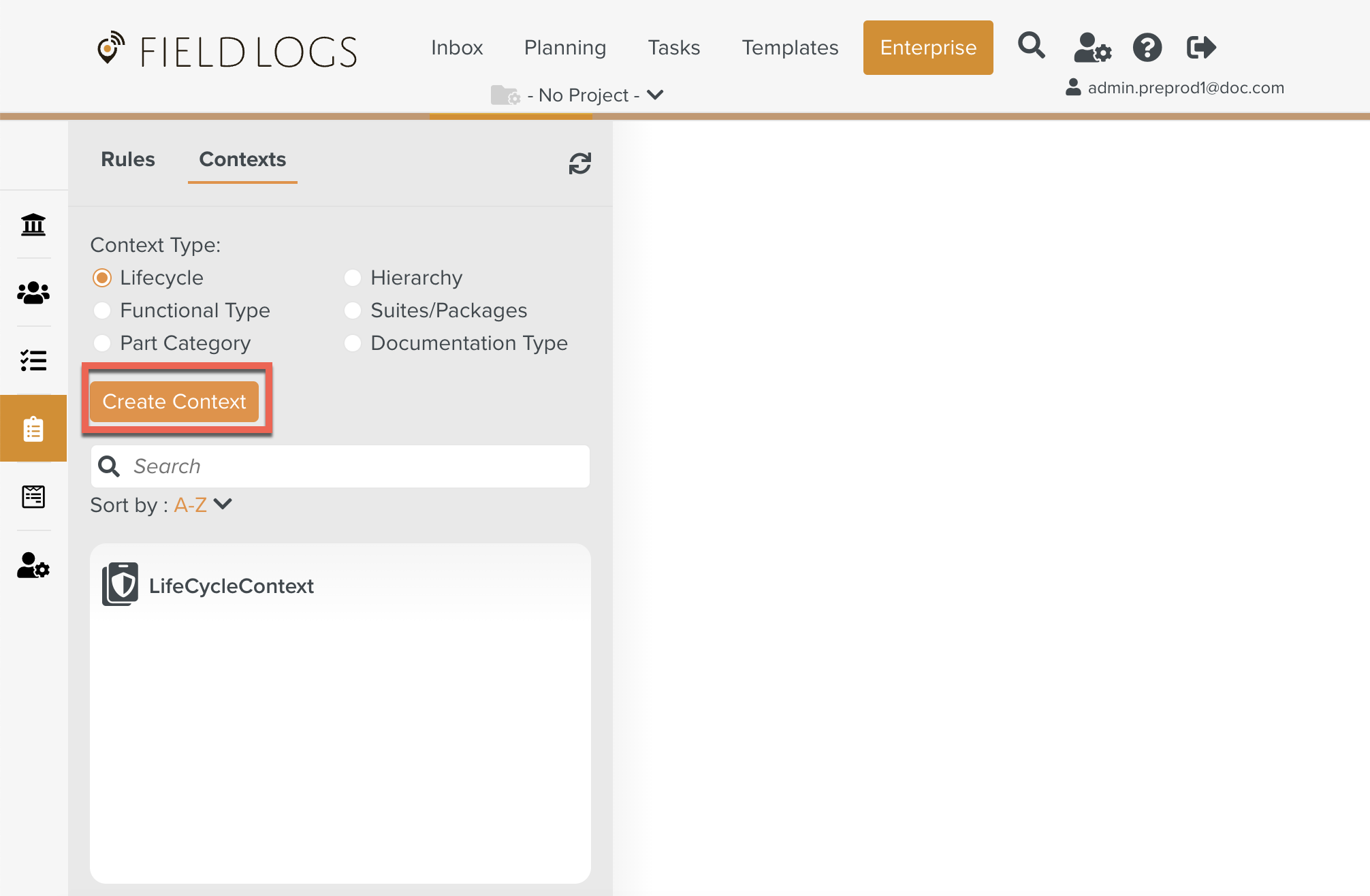
Enter Name.
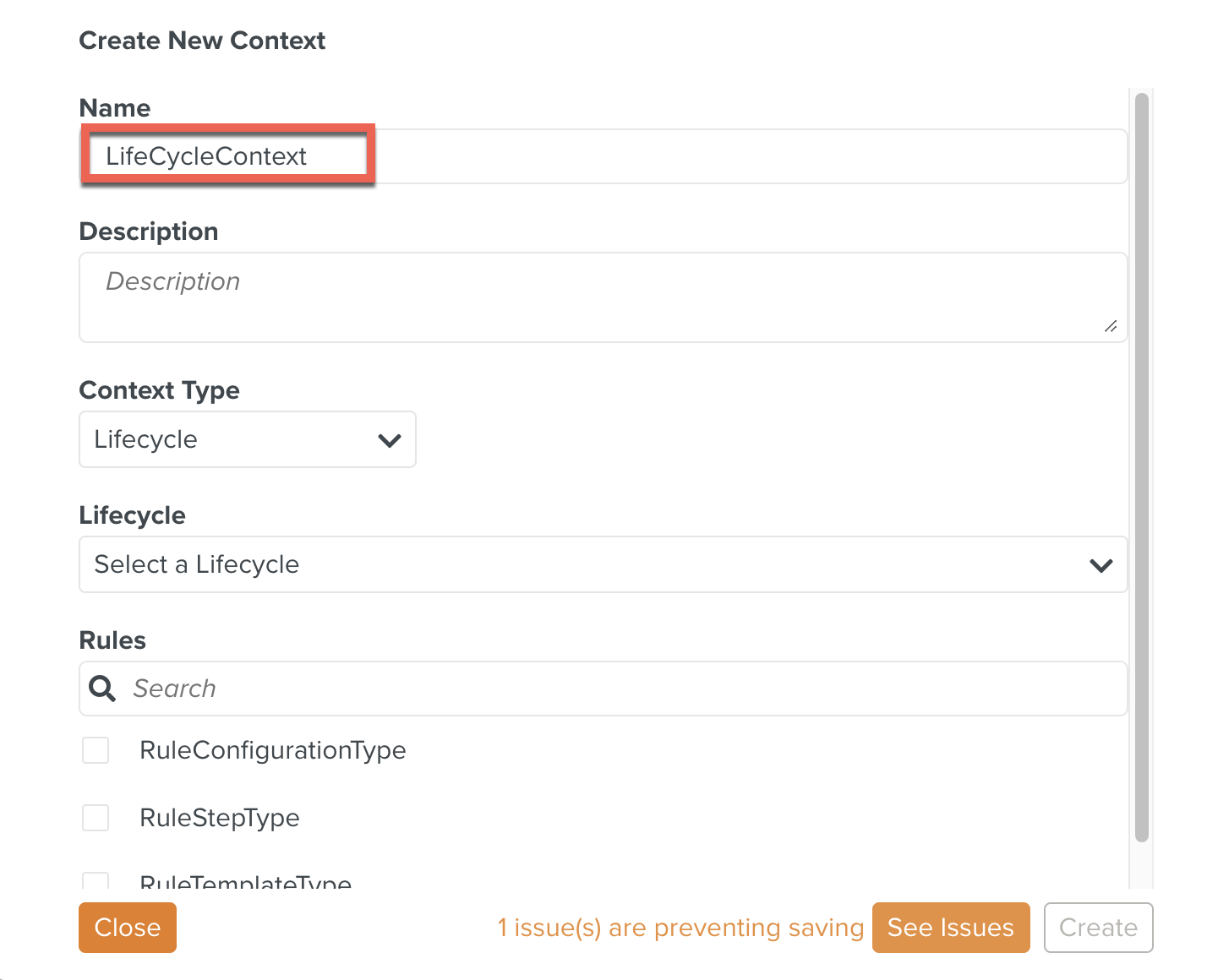
[Optional] Add Description.
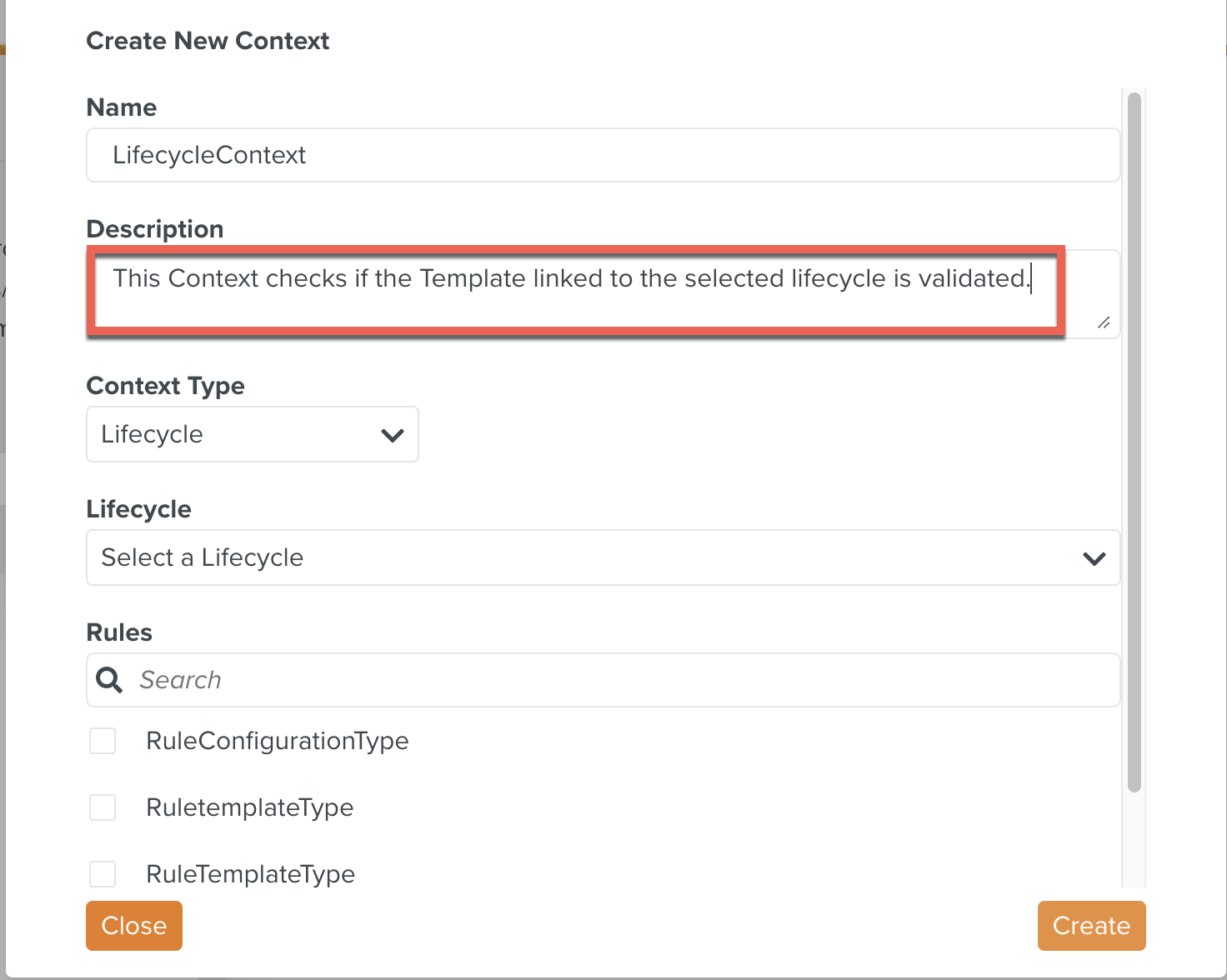
Select the Context Type from the dropdown list.
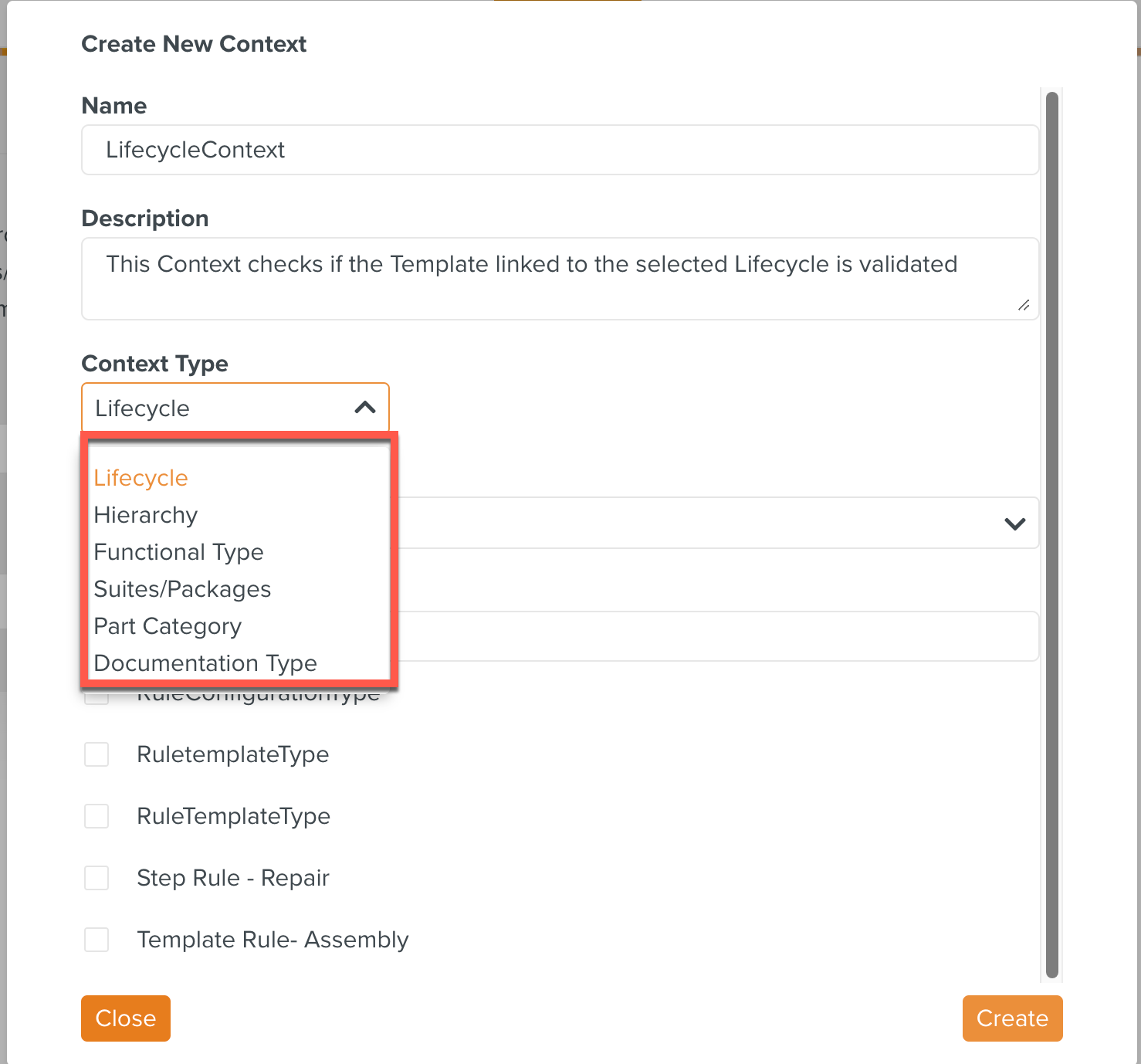
Below is the explanation of the Context Type.
Context Type
Description
Lifecycle
When any Template linked to the selected Lifecycle is validated, then all the Rules linked to this Context will be applied.
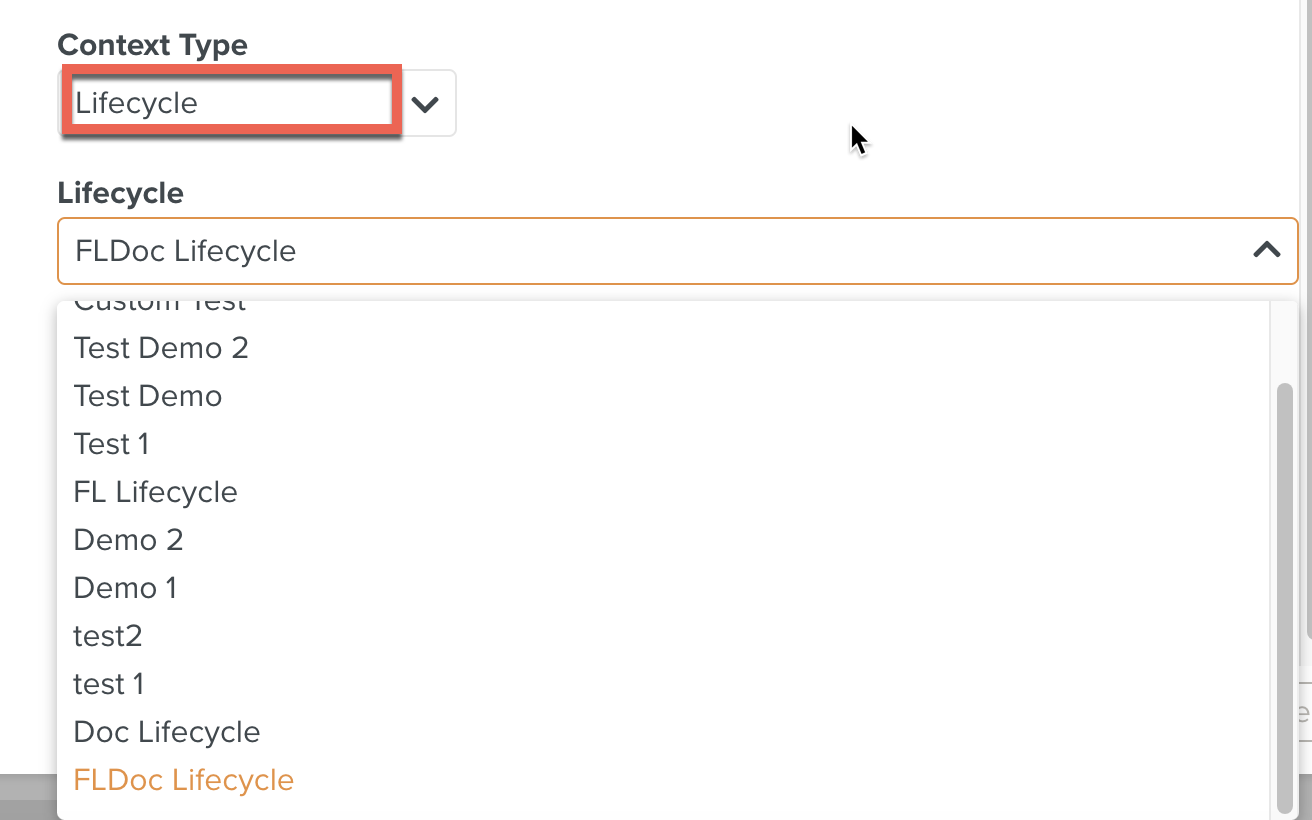
Hierarchy
If a user belonging to the selected group Hierarchy validates a Template, then all the Rules linked to this Context will be applied.
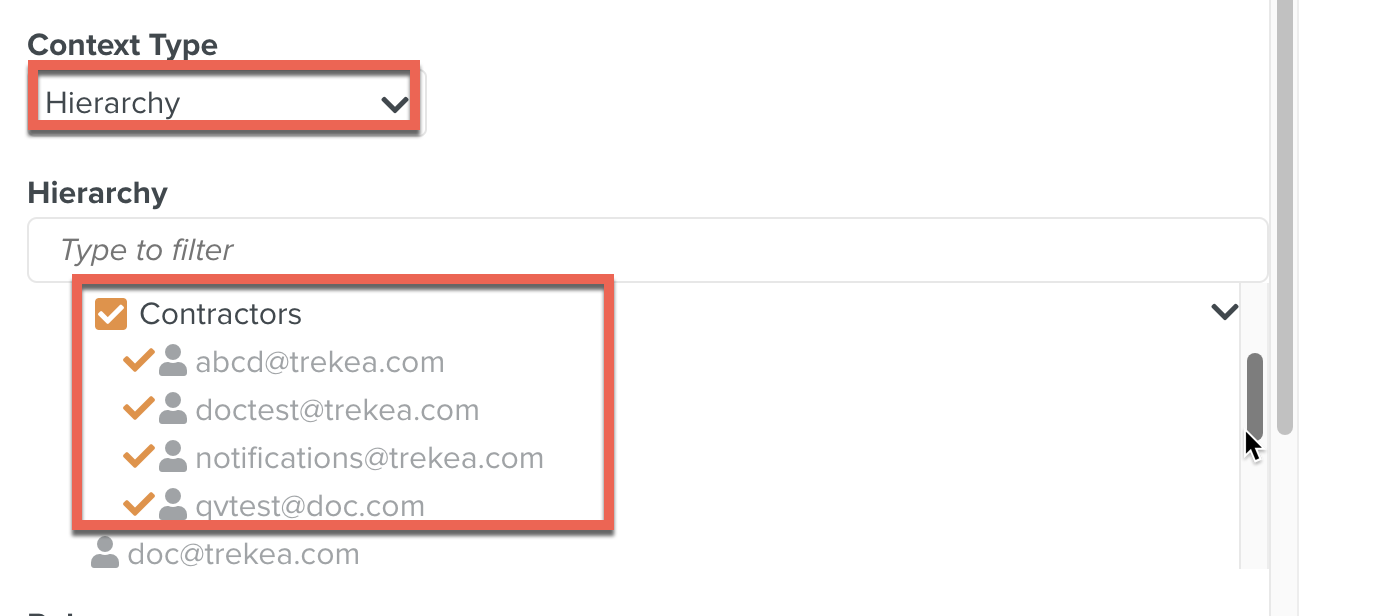
Functional Type
When any Template in the selected Functional Types is validated, then all the Rules linked to this Context will be applied.
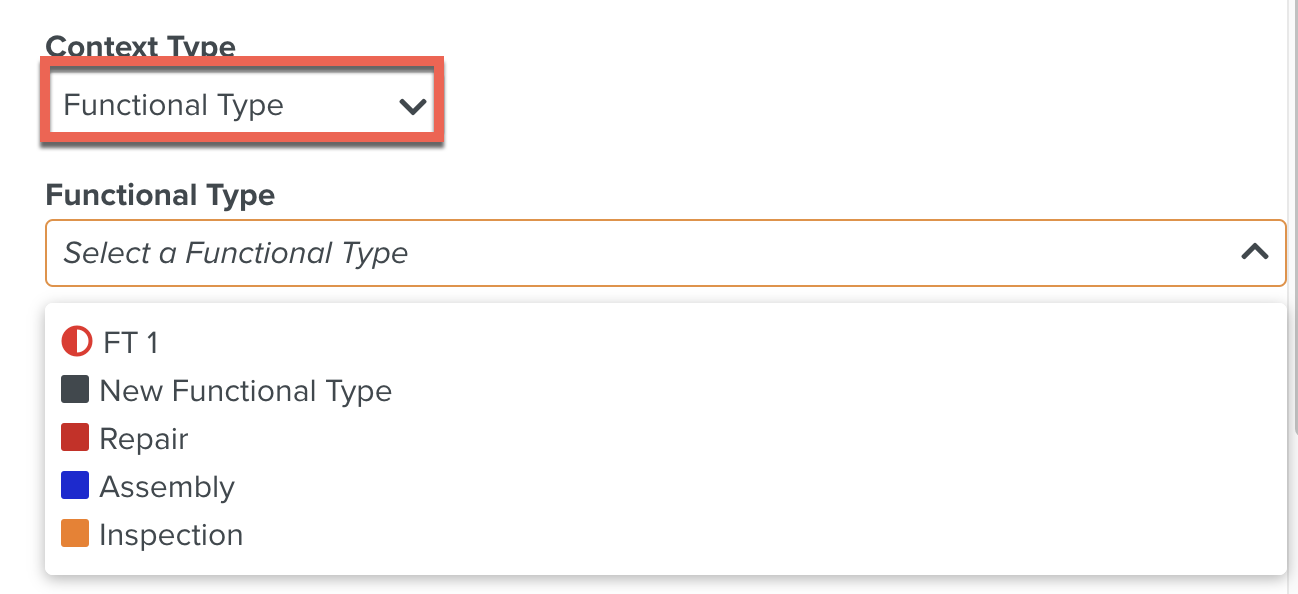
Suite/Packages
When any Template in the selected Suite/Package is validated, then all the Rules linked to this Context will be applied.
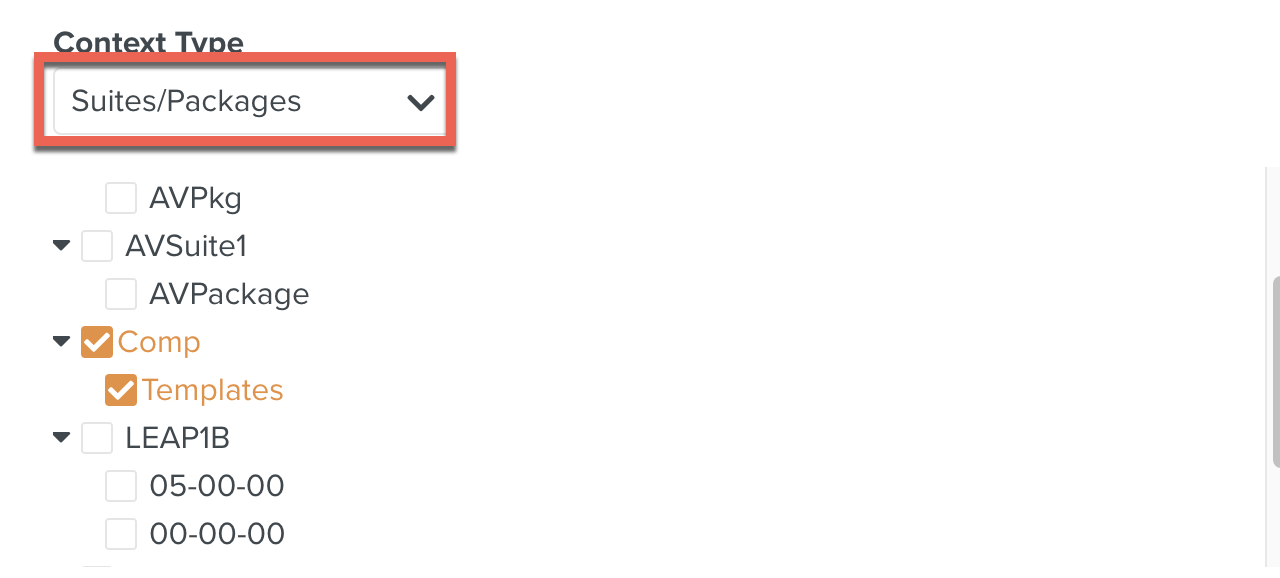
Part Category
When any Template in the selected Part Category is validated, then all the Rules linked to this Context will be applied.
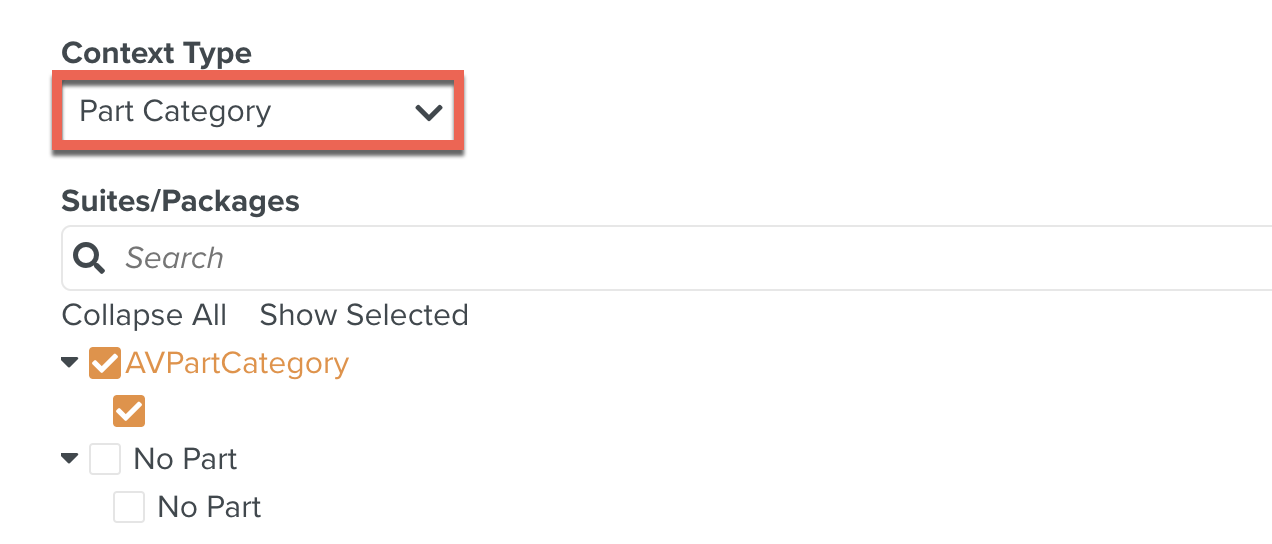
Documentation Type
When any Template in the selected Documentation Type is validated, then all the Rules linked to this Context will be applied.

Search the Rules to link to the Context as shown below.
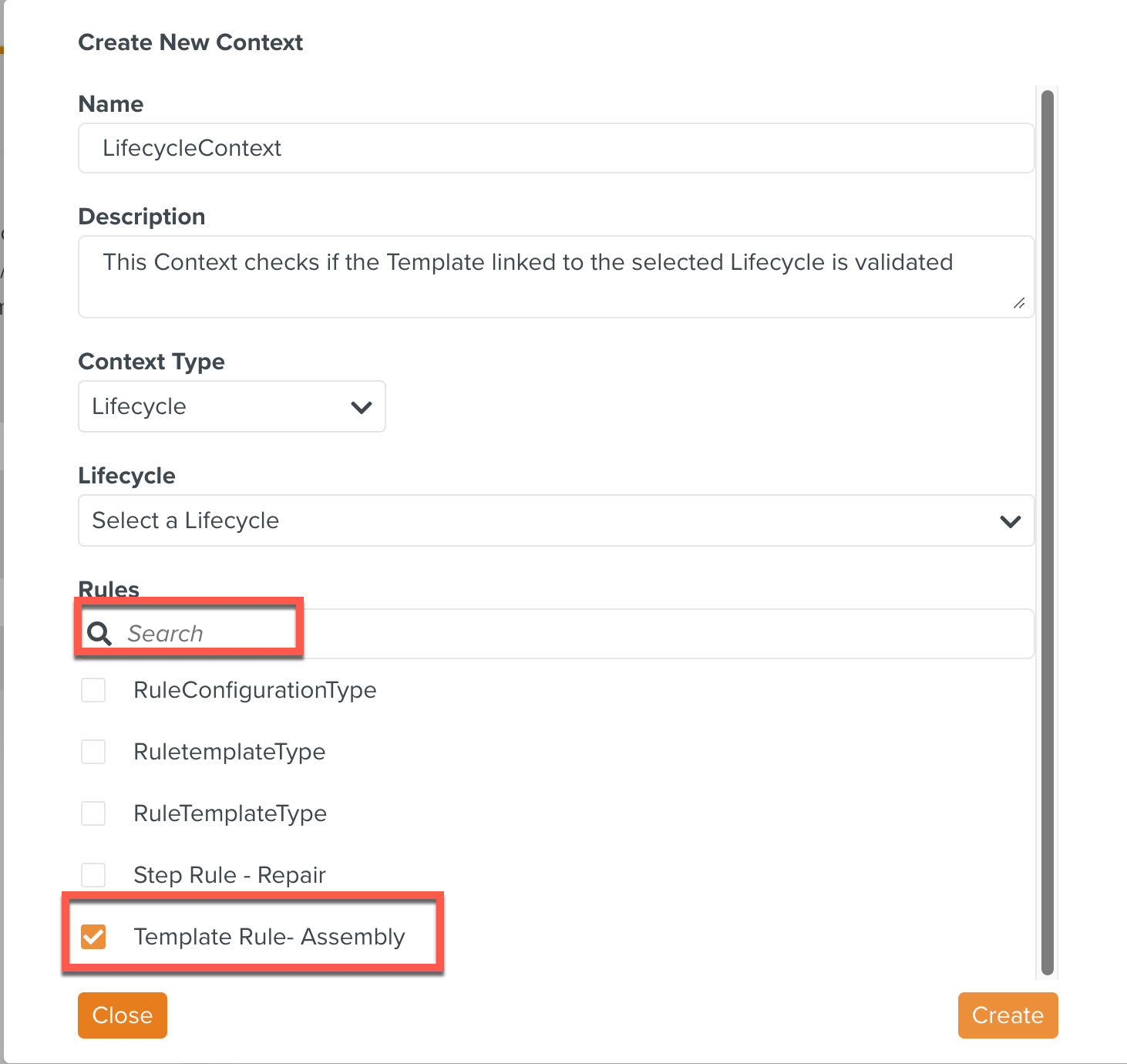
Click .
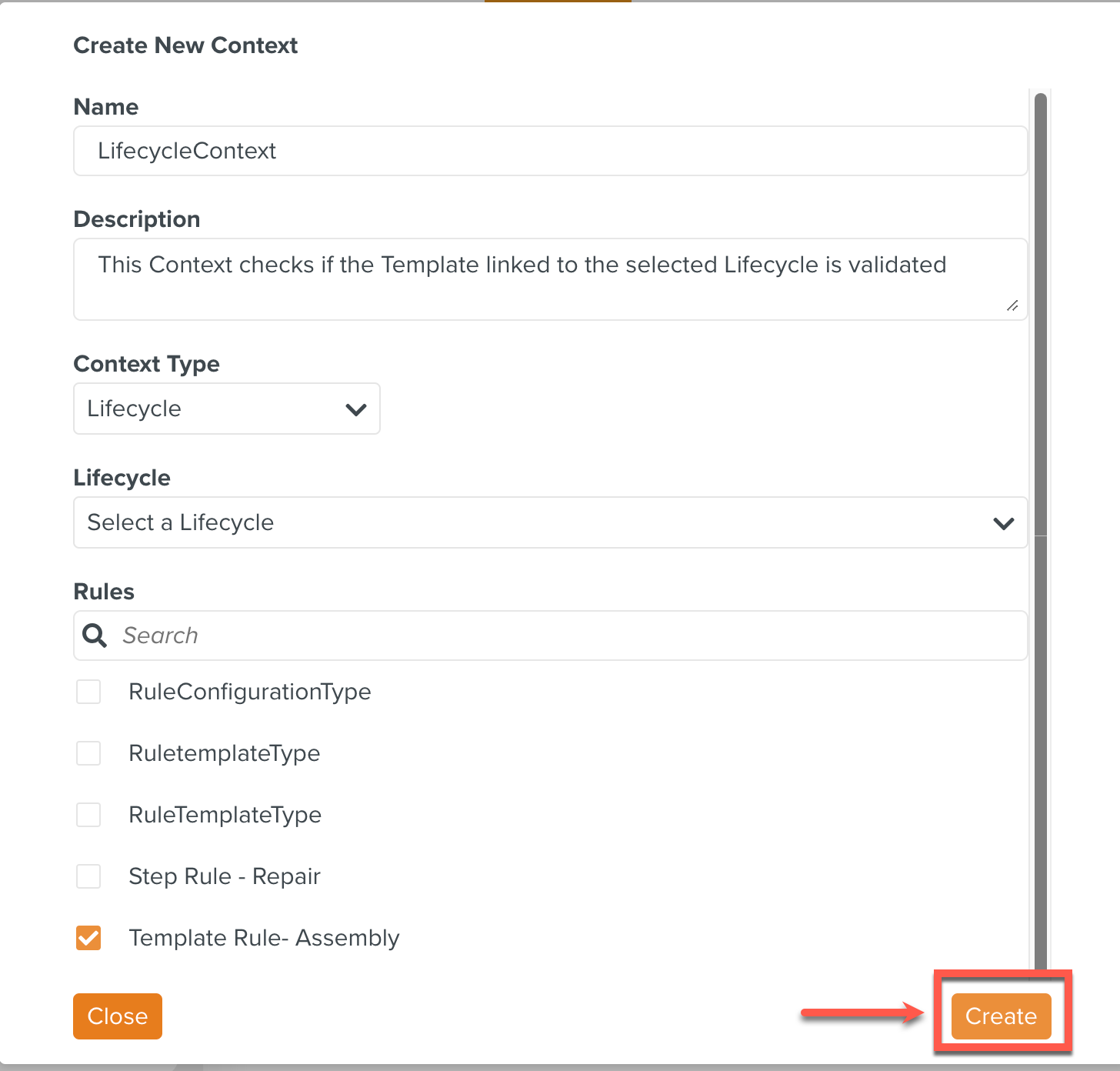
The Context is created.
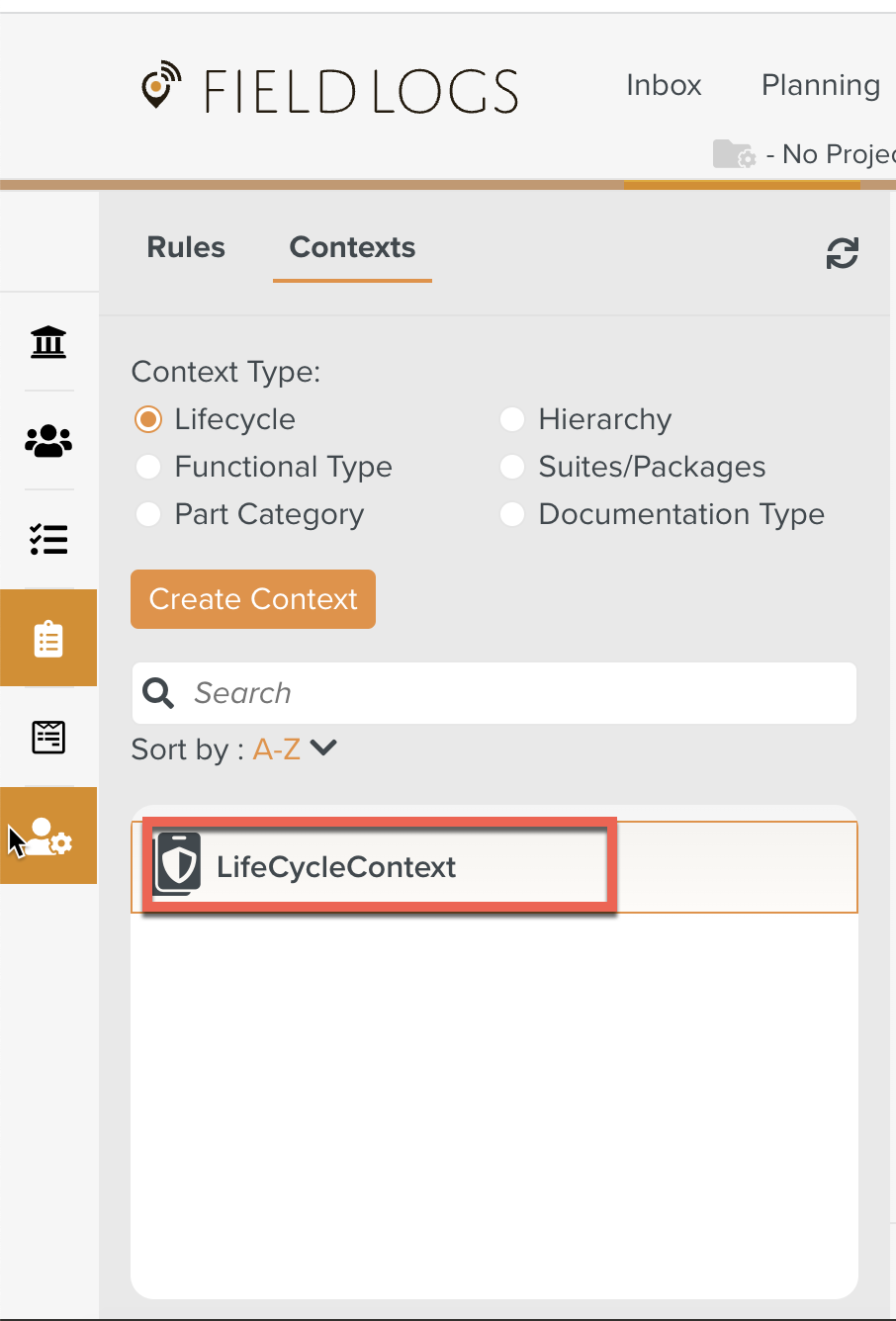
Note
Until all the mandatory fields are filled for the Rule, there is a notification at the bottom of the screen as shown.
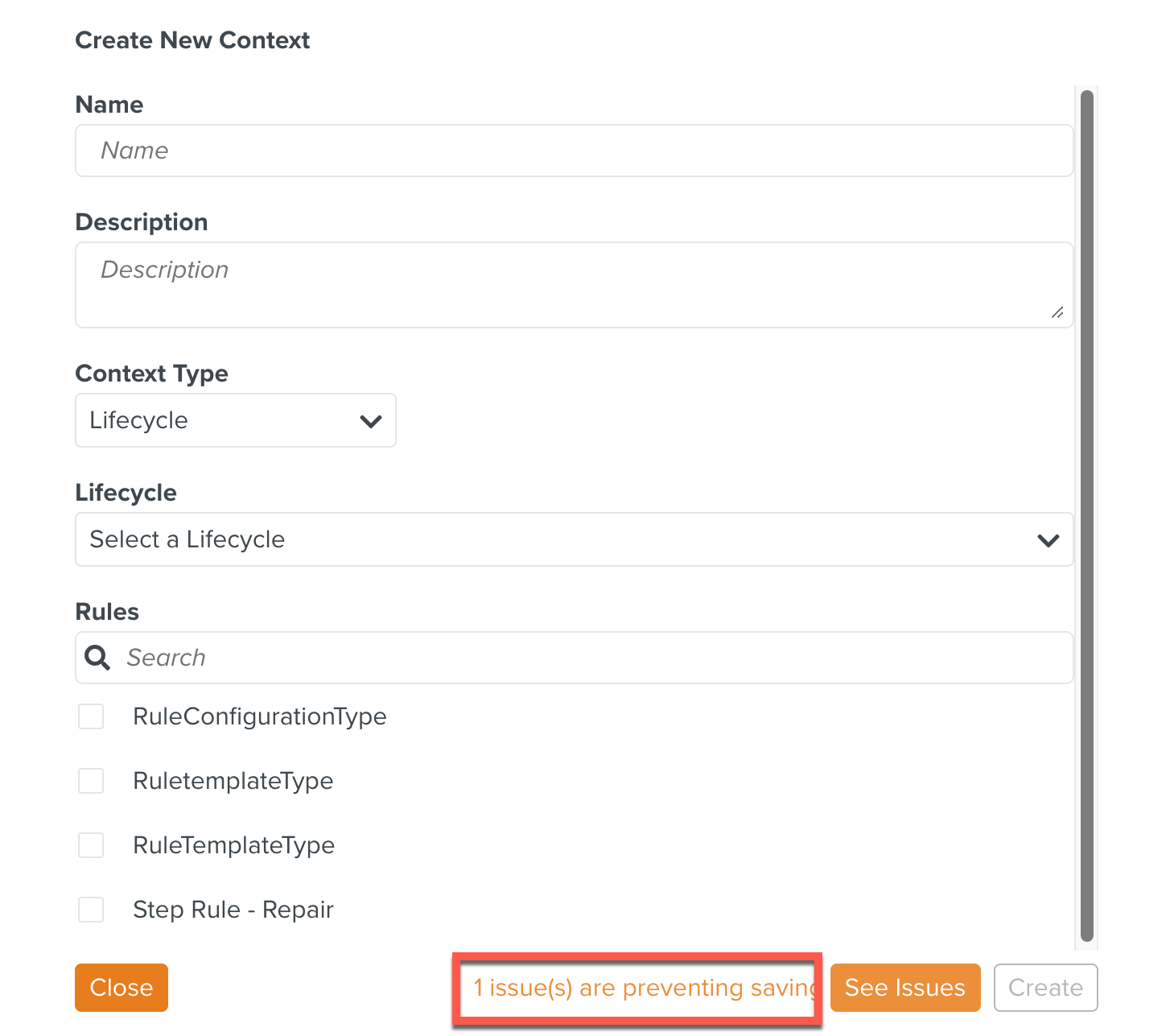 |
Clicking displays the issues as shown below.
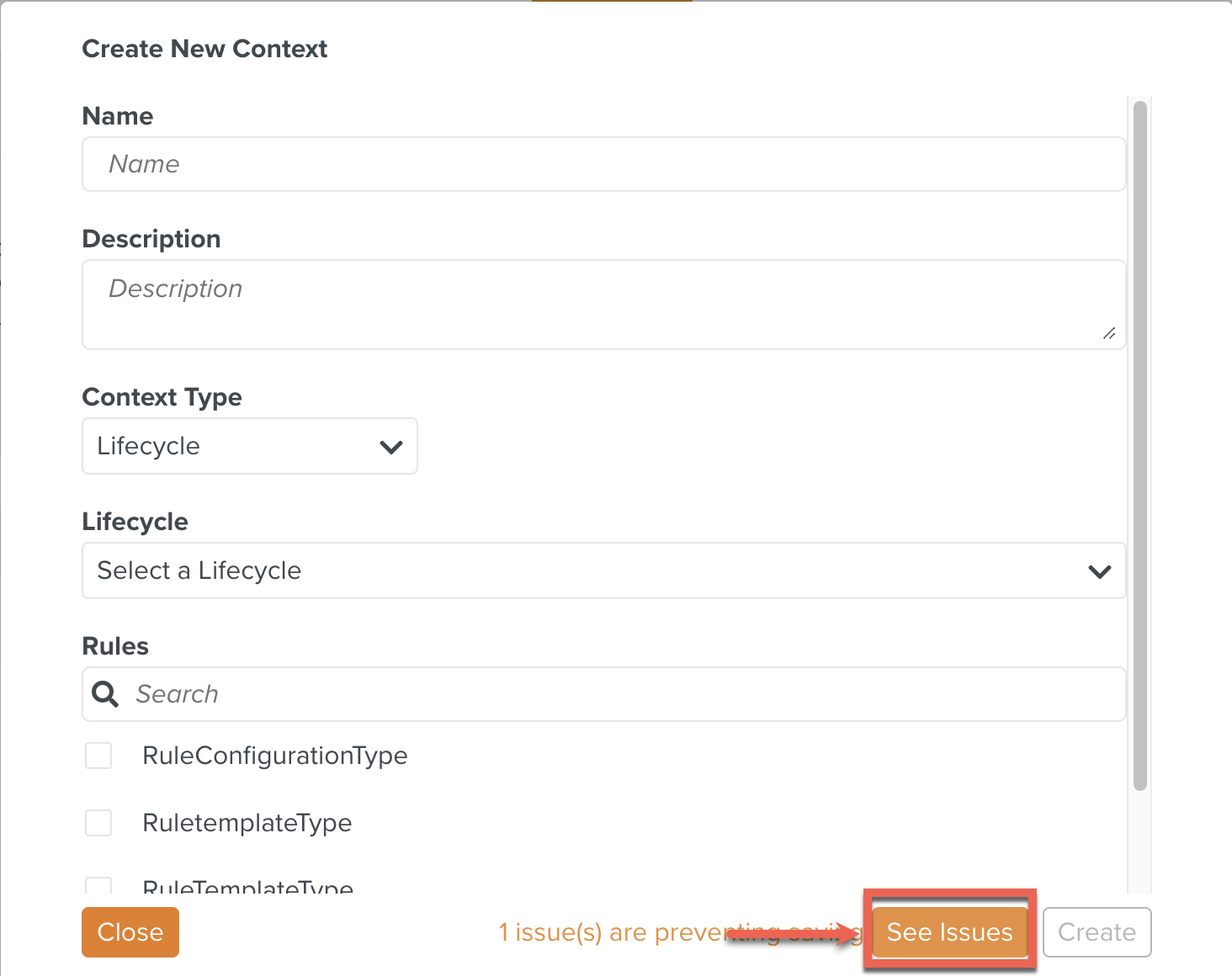 |
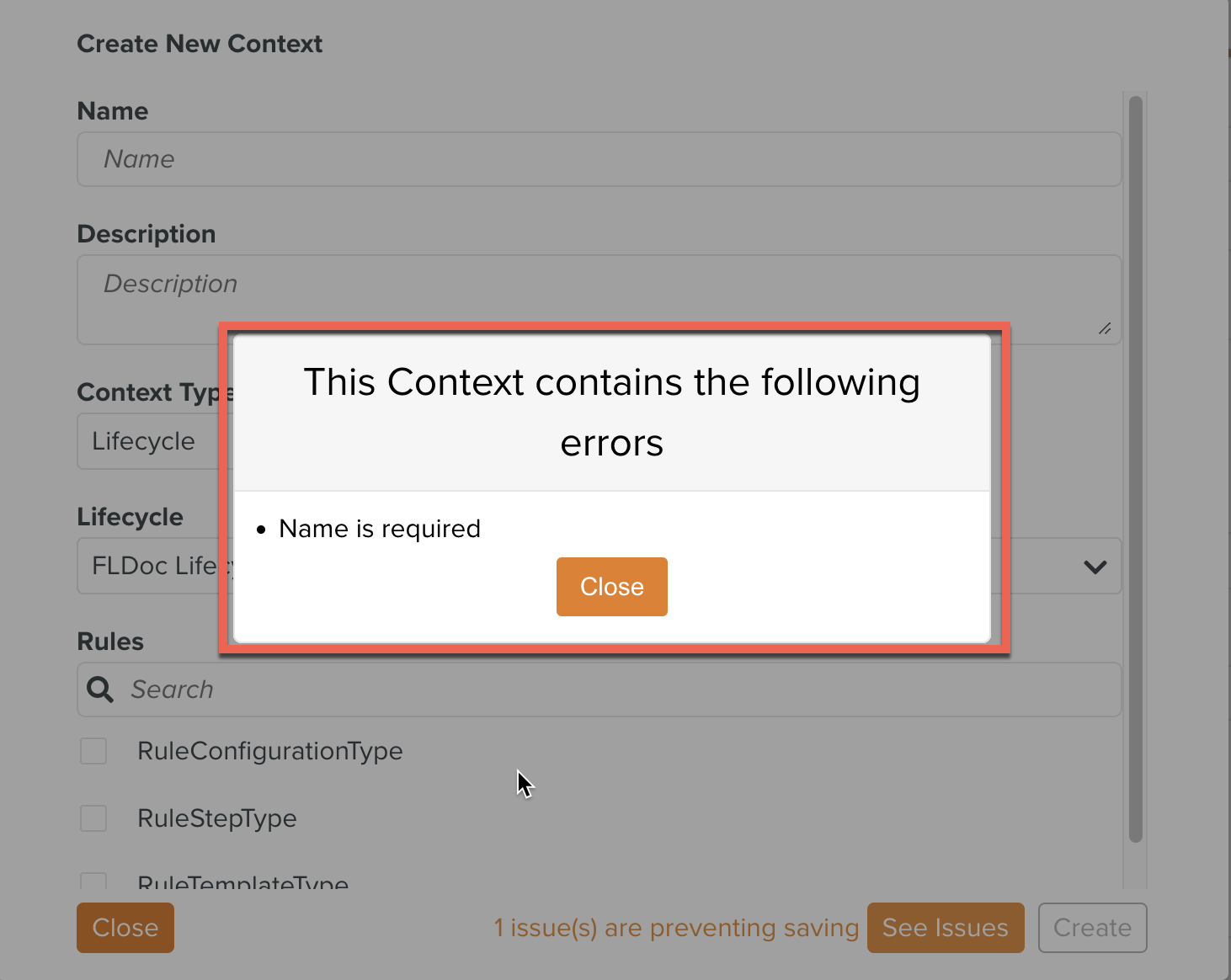 |
The Error also pops up in case of a Duplicate Context name.
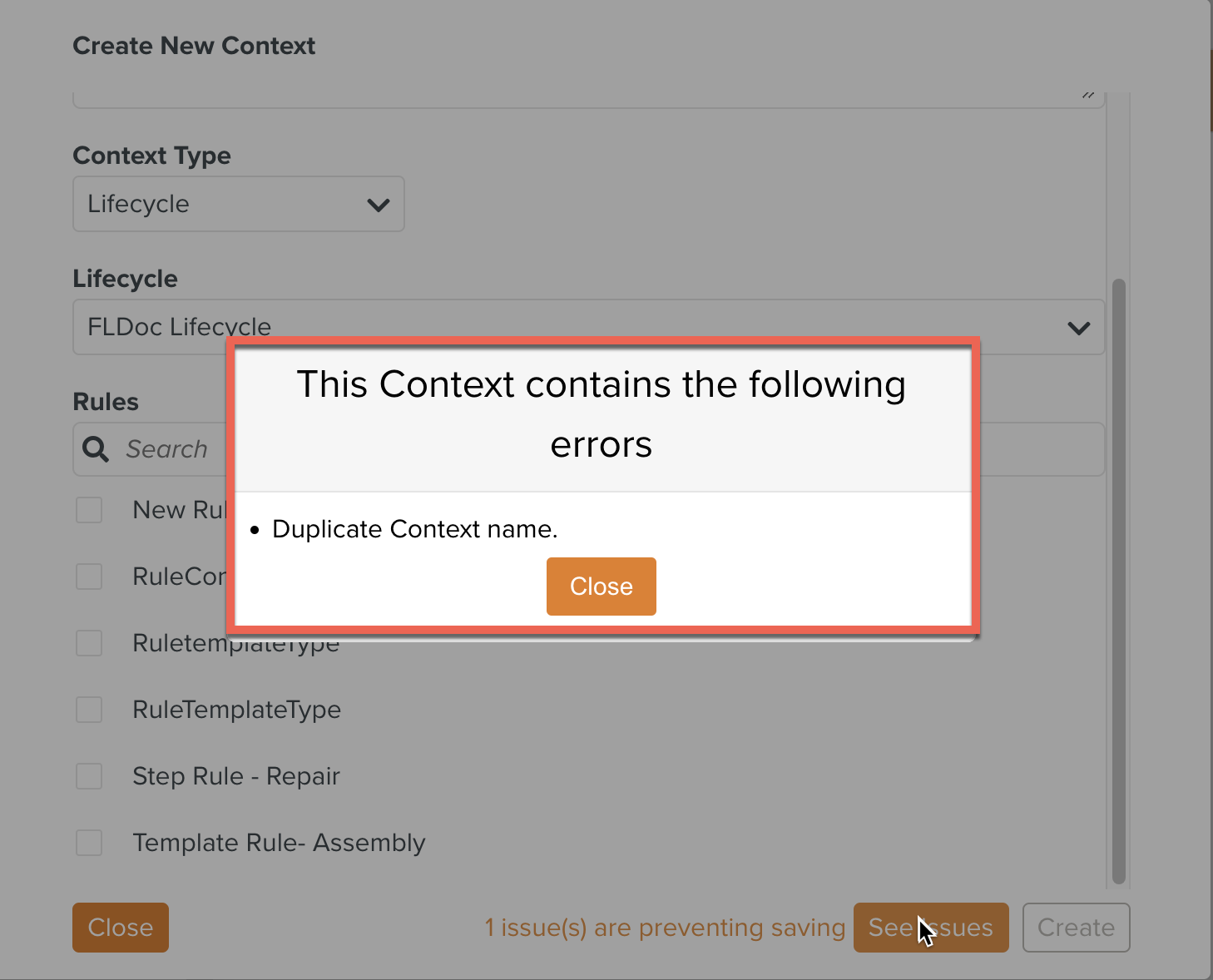 |